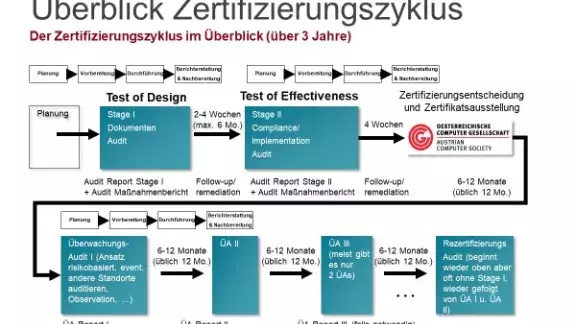
We promote and certify IT security
Information security and privacy - compliance
Insufficient IT security and privacy measures may lead to considerable fines and personal liability charges. The implementation of an effective information security management system (ISO/IEC 27001 certification) for your business substancially reduce the risk.
Operators of essential services must take the necessary steps to comply with the EU Directive on measures for a high common level of cybersecurity (NIS Directive). An efficient information security management system according to the ISO/IEC 27001 standard is certainly a good idea.
The OCG offers support through all steps of the certification process.
Information security has become a decisive competitive factor. An ISO/IEC 27001 certification proves to customers and partners alike that an organisation takes appropriate measures to protect its information.
Information security has become a decisive competitive factor. An ISO/IEC 27001 certification proves to customers and partners alike that an organisation takes appropriate measures to protect its information.
Ingrid Schaumüller-Bichl
IT security expert and OCG Certification Committee


